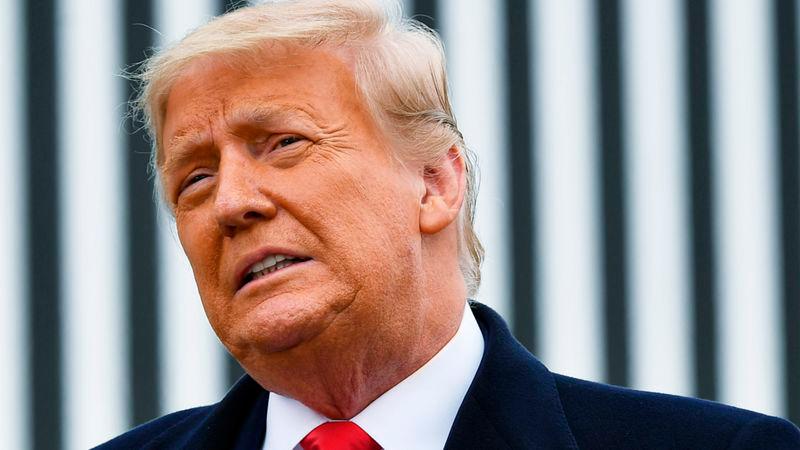PETALING JAYA: The invitation extended to US President Donald Trump to attend this year’s Asean Summit should be viewed in the broader context of regional diplomacy, Home Minister Datuk Seri Saifuddin Nasution said.
Speaking at the ministry’s monthly assembly yesterday, Saifuddin stressed that Malaysia, as this year’s Asean chair, represents not only the country but the collective voice of the now 11-member bloc with Timor-Leste’s inclusion.
He said the invitation must not be misinterpreted as Malaysia endorsing the US leader.
“The prime minister represents Asean, not just Malaysia. He speaks for a region of 680 million people with a large and relatively stable economy,” he said, adding that the chairmanship allows Prime Minister Datuk Seri Anwar Ibrahim to convey the bloc’s consensus on the global stage.
Saifuddin acknowledged concerns over Trump’s attendance, given his perceived support for Israel amid the Gaza conflict, but stressed that Asean’s leadership role requires engagement with all major global leaders, including those whose policies may be contentious.
“The presence of any leader, including Trump, must be understood in the context of international politics,” he said.
Drawing on historical and religious teachings, Saifuddin said diplomacy has always required dialogue with powerful yet controversial figures.
He cited the Quranic example of Prophet Musa (AS), who was instructed to address Pharaoh – seen as one of history’s most tyrannical rulers – with gentle words despite his cruelty.
“Even in confronting wrongdoing, engagement allows us to speak directly, present our positions and uphold principles,” he said.
He also referred to Indonesian scholar Buya Hamka’s Tafsir Al-Azhar, which emphasises respectful language even when admonishing leaders.
“Our guidance is clear. We can condemn violent attacks on Gaza and criticise policies supporting Israel firmly, while addressing them respectfully in person,” Saifuddin said.
He further highlighted a Hadith stating that the greatest jihad is to speak the truth before an unjust ruler.
“Does engaging with them mean we are befriending evil? How else can we speak if we cannot confront them directly?” he asked, stressing that dialogue does not equal endorsement.
As Asean chair, Saifuddin said, Malaysia will convey the bloc’s consensus on peace, security and regional stability, while providing a platform for global leaders to tackle shared challenges.
“This is about diplomacy, dialogue and responsibility. As host and chair, Malaysia ensures discussions are constructive while representing Asean’s interests and values,” he said.
The summit is expected to bring together leaders from the United States, China, India, Russia and Brazil, alongside Timor-Leste’s first participation as a member.
Saifuddin said hosting such a high-profile meeting underscores Malaysia’s commitment to regional cooperation and global engagement.
Last Sunday, Anwar rebuked critics of Trump’s invitation, saying Kuala Lumpur will use the summit to continue pressing the issue of Palestine.
Senior press secretary to the prime minister Tunku Nashrul Tunku Abaidah said Malaysia’s invitation to Trump for the 47th Asean Summit is part of its duty as chair to ensure all dialogue partners attend, with turning away any leader never an option.
“Diplomacy is about engaging directly, not avoiding difficult conversations,” he said at a Prime Minister’s Office briefing in Putrajaya yesterday.
Tunku Nashrul added that the summit is an opportunity for Malaysia to showcase leadership and push regional priorities on the global stage.
At the same time, he reaffirmed Malaysia’s firm stand on Palestine, pointing out that Prime Minister Datuk Seri Anwar Ibrahim has consistently condemned Israeli aggression and emerged as one of the most vocal international leaders defending Gaza.
“Malaysia will continue to stand firm on Palestine, while also fulfilling its responsibility to lead Asean in building a prosperous and stable region,” he said.
The briefing outlined Malaysia’s wider chairmanship agenda, including boosting economic cooperation, attracting strategic investments, expanding trade and deepening regional integration.
“Asean must speak with one voice and work with all partners – not only the US, but also China, Japan, Korea, Australia and the Gulf Cooperation Council,” Tunku Nashrul said.









